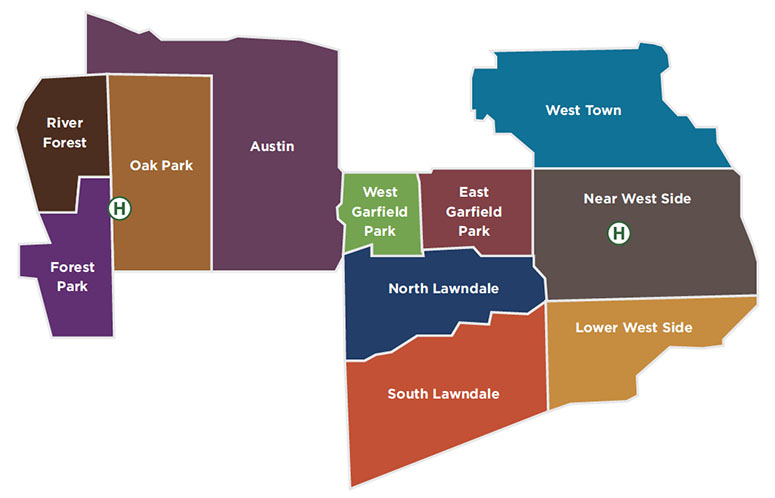
Diverse, multicultural patient population
- Chicago is truly a melting pot of cultures, races, traditions, religions, languages, and gender identities. By the time our residents graduate from our program, they feel well prepared to practice with any population.
- Rush sits at the crossroad of some of the wealthiest and most impoverished neighborhoods of Chicago. As our Vice President for Community Health Equity, Dr. David Ansell writes in The Death Gap: How Inequality Kills, individuals living in the downtown Chicago (the "Loop") two miles to the east of Rush have a life expectancy of 85 years. Individuals living three train stops to the west of Rush have a life expectancy of only 69 years. There are many reasons for this death gap, including high levels of poverty and economic hardship, violence, and structural racism. This culminates in poorer health outcomes. Compounding all of this are high rates of trauma and injuries caused by violence.

We produce community-conscious leaders
- We as a program firmly believe that in order to provide effective healthcare for all of our patients, we must learn everything we can about healthcare inequities and social determinants of health, and practice medicine with this in our forefront.
- We recognize that the conventional system of waiting for patients to seek providers out and come to the hospital is insufficient for many individuals.
- Our medical center and department has partnered with local community organizations and leaders to deliver needed mental health services such as screenings and education, directly in the communities. This project, known as the West Side Mental Health Initiatives, places mental health professionals inside local health care institutions, public schools, YMCAs, and faith-based organizations.
- We have developed a robust Collaborative Care program in the Primary Care Medicine and Psychoocology, and are in the midst of developing a similar program in Pediatrics. Our residents participate in our Collaborative Care program as PGY-2s and many return to do an elective as PGY-4s. We believe Collaborative Care is one of many effective tools to reaching patients that get missed through conventional 1:1 appointments.
- Similarly, with the advent of the COVID-19 pandemic, we have been employing telepsychiatry to reach many more patients than could otherwise be reached.
Contact Us
2150 W. Harrison St.
Chicago, IL 60612
Phone: (312) 563-1212
Email: psychiatry_residency@rush.edu
